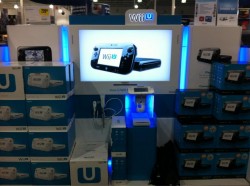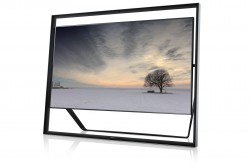Weekly News Roundup (12 January 2014)
And we’re back. News wise, that is. With CES happening this week, there’s a lot of interesting stuff floating around, and that makes my job a lot easier than trying to write up the latest non-story about how some intern at The Ellen Show might be leaking screeners to torrent sites. That’s for next week!
Let’s go.
![]()
There was a peek into the mindset of the MPAA this week as The Hollywood Reporter published an interview with the MPAA’s top lawyer Steven Fabrizio, in which everything from SOPA to Hotfile was touched upon.
My take from the interview is that the MPAA seems to think it’s everyone else’s responsibility to do more on the piracy problem, yet it is the MPAA’s efforts that have led the way for the successes enjoyed by legal services such as Netflix. The government can do more, Fabrizio says, and not just the US government but “all governments around the world”. Google should do more too, because “they have a great responsibility to do more” and that’s because Google apparently “benefits tremendously” by providing search engines access to pirated content. Other industries must also do more and “adopt meaningful and voluntary reforms”.
So why should everyone else help out the home entertainment industry, and in particular, the movie industry? It’s the jobs, stupid. And the MPAA creates them and adds $$$ to the economy. Of course, other industries also creates jobs and $$$, and if the MPAA gets their way, it may mean less jobs and $$$ for the others. Google’s revenue alone is half of the movie industry’s entire worldwide revenue, I believe.
As for the MPAA’s victories being the legal foundation for the success of legal services, the question I would ask is: what victories? Granted, the music industry has had its successes, but could you really say that Spotify wouldn’t exist today if the RIAA hadn’t won against Napster? If anything, it’s the music industry itself that Spotify had to fight and win, and continues to fight today, to gain its success. But perhaps the paper victories over Napster and LimeWire was what gave the industry the false sense of security that allowed them to take more risks in licensing content to Spotify and others. So I guess there is a point here.
![]()
There might be a third Blu-ray video format joining standard Blu-ray and Blu-ray 3D later this year. Blu-ray 4K could be here by the end of the year, at least according to Samsung, who already has a four-layer 125GB disc ready to use, along with the players needed to play it. The only stumbling block now is the choice of video codec, which given the VP9 vs HEVC tussle I mentioned in the WNR last week, could become a complicated thing.
On the other end, and also backed by Samsung, Netflix thinks that disc formats are a “yesterday’s solution” to the problem of 4K content distribution, having just announced at the CES that Netflix 4K streaming will be available immediately on new 4K/UltraHD TVs from Sony, LG and Samsung, among others. These new TVs comes with a dedicated HEVC decoder chip, but beyond House of Cards in 4K, there’s not a lot of 4K content on Netflix at the moment. Plus, you’ll also need a 16 Mbps web connection, which is out of reach for many people.
So I think discs will have a place in the post 4K world. It also means new TVs and new (4K enabled) Blu-ray players that people will “have to” upgrade to, which is good news for the consumer electronics industry.
![]()
Sometimes it’s nice to be an early adopter. Most of the time, it’s not. And that’s what some PS4 owners have come to realise, when their new $400 machine fails to do what $50 ones, and Sony’s old console, can do flawlessly. PS4 owners are reporting various Blu-ray playback problems, when the same discs works perfectly fine in other Blu-ray players, including the PS3. Affected titles include Despicable Me 2, Fast & Furious 6 and Sony’s own The Amazing Spider-Man.
Symptoms include freezing during playback, or a black screen when the disc first loads.
It’s very likely these problems will be fixed eventually via software patches, but for me, it’s more evidence that both the PS4 and Xbox One were rushed to market in an effort to compete with one other. Neither console looks completely ready for prime time, and it’s mostly in areas that have already been perfected in the previous gen. I think it’s just easier these days to release a (relatively perfect) piece of hardware with beta software, and then patch it up afterwards (the Windows model). In the days when hardware wasn’t so easy to update (when most didn’t have an Internet connection, or a USB port), I’m sure more effort was taken to ensure the software was also near perfect prior to release.

With PS4 and Xbox One short of stock, Wii U stock remains plenty this holiday season. Photo credits: levelsave.com
Regardless of the issues with either console, gamers don’t seem to mind too much. Sony announced at the CES that 4.2 million PS4s have been sold worldwide in the 6 and a bit weeks of 2013, beating the Xbox One’s 3 million. The PS4’s lower price tag seems to be paying dividends for Sony, while Microsoft has struggled so far to justify the value of Kinect, which is included in the price tag. Until there are more compelling reasons for using Kinect, other than the haphazard voice and motion control currently in place, gamers will choose the console that seems to be better for games. Which is the PS4 at the moment.
News of the 4.2 million PS4s sold in 2013 must make painful reading for Nintendo execs, as the number comes perilously close to the total number of Wii Us out there in the wild (which at last count was somewhere just north of 5 million). This is despite the Wii U having had more than a year’s head start, and it’s now inevitable that the PS4 will outsell the Wii U in the first few months of 2014, with the Xbox One doing the same a little bit later. The more people that join the next-gen by choosing a Microsoft or Sony console, the fewer the number of people that will desire a Wii U, and this has to be a big worry for Nintendo.
Perhaps another price cut is what is needed to keep the Wii U in the game. Poll: What do you think the right price should be?
This is probably a good place to end this WNR. See you next week.


